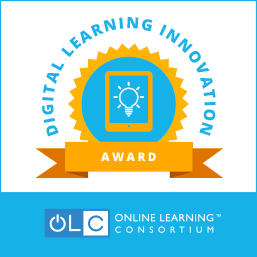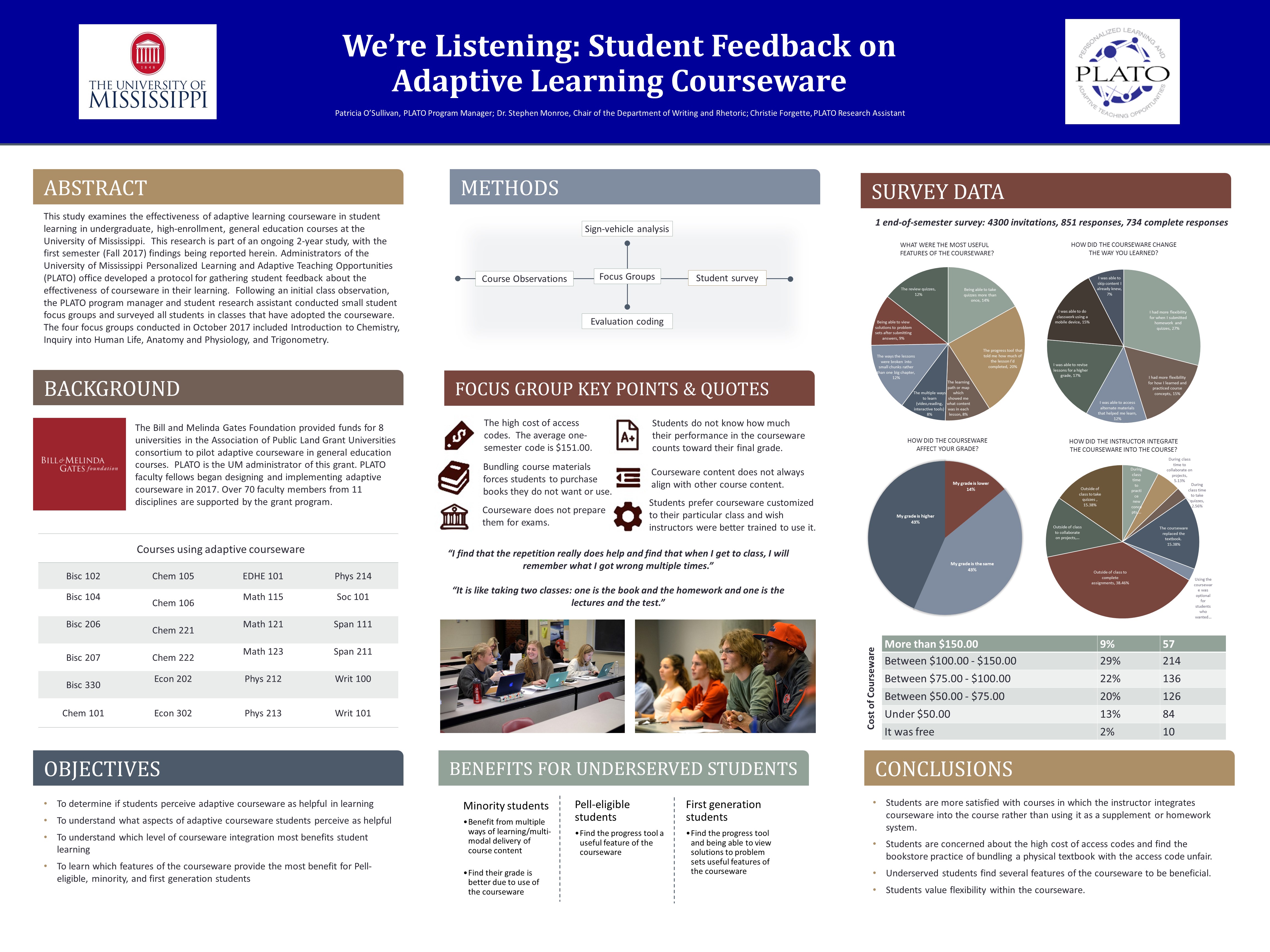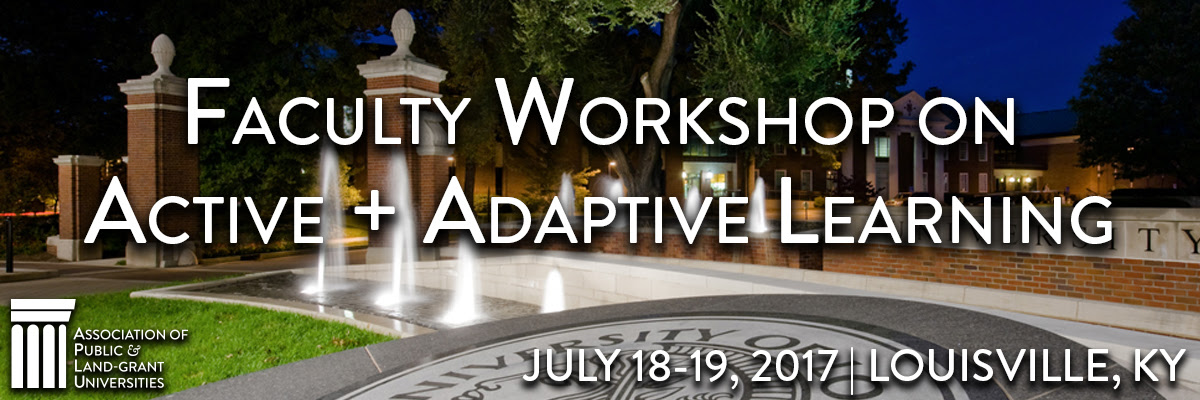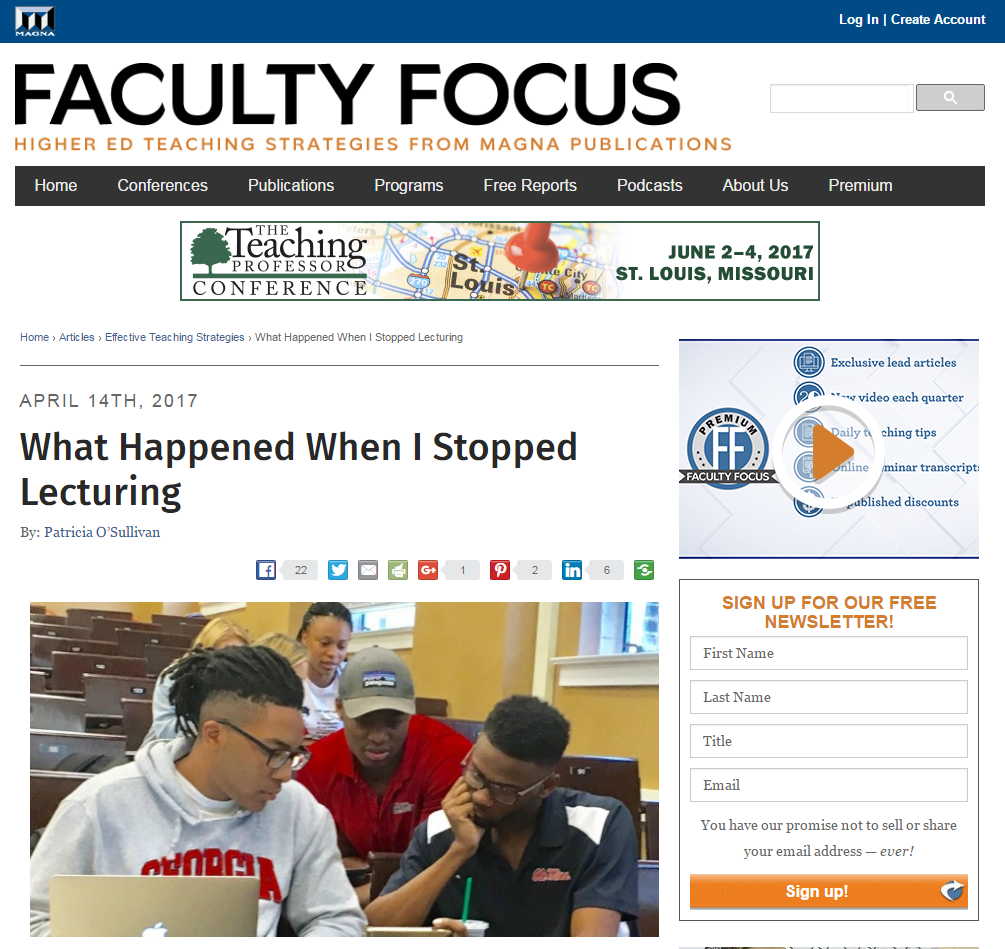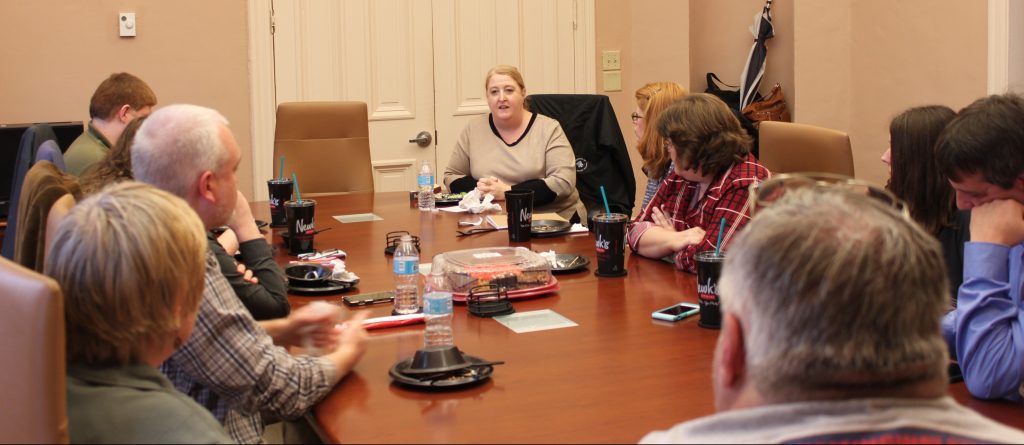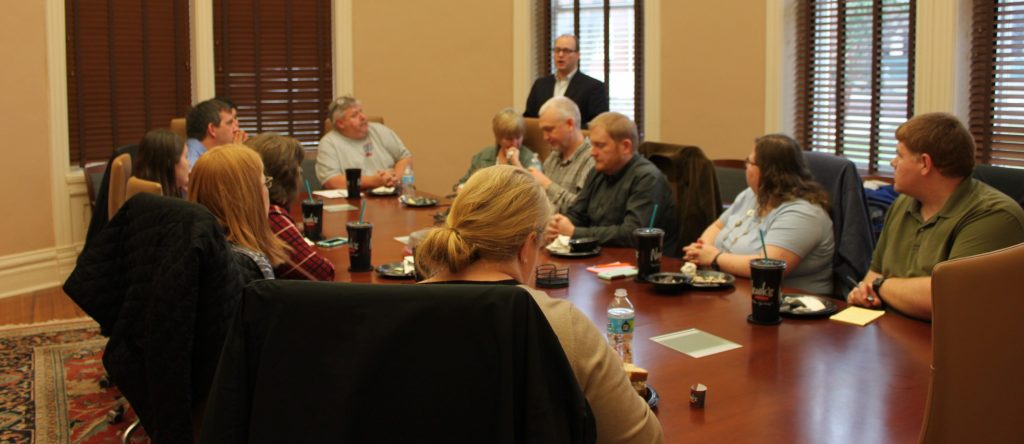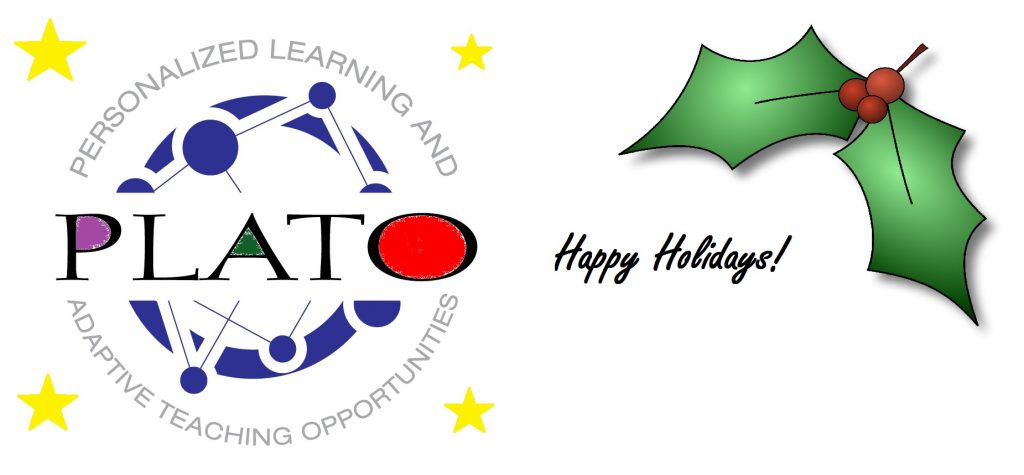November 13, 2018
On November 13, 2018, the Writing 101 course directors, Karen Forgette, Assistant Chair of Writing & Rhetoric, Guy Krueger, Core Lecturer, and Andrew Davis, Instructor and Instructional Design and Training Specialist, were honored by the Online Learning Consortium with the Faculty Digital Innovation Award for their creation of adaptive online modules for Writing 101. The award includes $10,000.00 in prize money that the recipients are investing back into the course. We are so proud of the Writing 101 team for this incredible recognition!
July 31, 2018
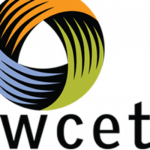 On October 25, 2018, Patricia O’Sullivan and research assistant, Christine Forgette, will present research they’ve done on the student perception of the effectiveness of adaptive courseware in teaching and learning at the WCET Annual Meeting in Portland, OR.
On October 25, 2018, Patricia O’Sullivan and research assistant, Christine Forgette, will present research they’ve done on the student perception of the effectiveness of adaptive courseware in teaching and learning at the WCET Annual Meeting in Portland, OR.
Program Manager, Patricia O’Sullivan, and research assistant, Tyler England, presented a session on adaptive courseware at the Teacher’s Seminar hosted at the American Association of Colleges of Pharmacy Annual Meeting on July 21, 2018 in Boston, Massachusetts.
April 18, 2018
We organized data from the first semester’s student survey and focus groups feedback into a poster for the Scholarship of Teaching and Learning poster session, hosted by the Center for Excellence in Teaching and Learning.
December 14-15, 2017
Site visit to the University of Mississippi by representatives of the Association for Public Land Grant Universities (APLU), the Digital Learning Solutions Network (DLSN), and the Bill and Melinda Gates Foundation (BMGF).
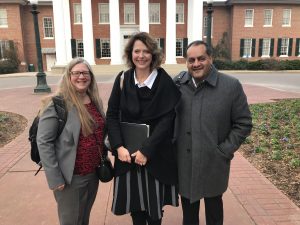
Dr. Karen Vignare, Executive Director of the Personalized Learning Consortium at the APLU, Dr. Stacey Guney, Executive Director of the DLSN, and Dr. Rahim Rajan, Senior Program Officer in the Postsecondary Success Program at the BMGF, pose in front of the Lyceum.
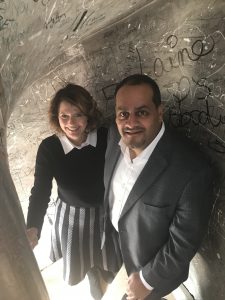
Dr. Stacey Guney and Dr. Rahim Rajan got a special tour of the Ventress Hall tower during their visit December 15, 2017.
September 22, 2017
Awards Luncheon
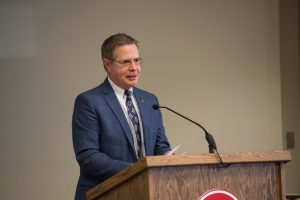
Chancellor Vitter offers the opening remarks at the awards luncheon.PLATO awards luncheon. Photo by Kevin Bain/Ole Miss Communications
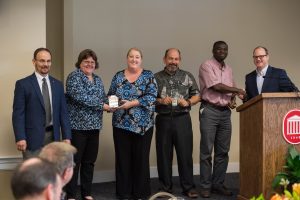
The Chemistry department, represented by Chair, Dr. Gregory Tschumper, Dr. Kerri Scott, Dr. John Wigington, and Dr. Safo Aboaku receives PLATO Pioneer Awards.PLATO awards luncheon. Photo by Kevin Bain/Ole Miss Communications
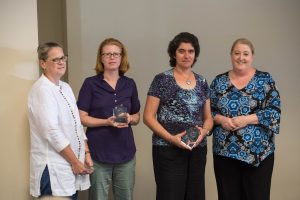
The Biology department, represented by Dr. Carol Britson, Dr. Carla Carr, and Dr. Tamar Goulet, receives PLATO Pioneer Awards.PLATO awards luncheon. Photo by Kevin Bain/Ole Miss Communications
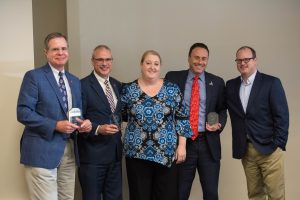
Pioneer Awards were given also to Chancellor Vitter, Provost Wilkin, and Dean Cohen of Liberal Arts for their support of the program. PLATO awards luncheon. Photo by Kevin Bain/Ole Miss Communications
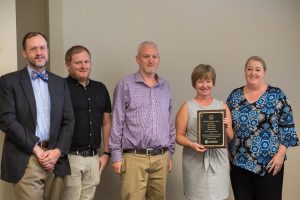
The Writing 100/101 team, led by Dr. Bob Cummings, Andrew Davis, Guy Krueger, and Karen Forgette, won the PLATO Team Award.PLATO awards luncheon. Photo by Kevin Bain/Ole Miss Communications
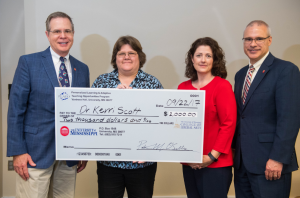
Dr. Kerri Scott won the PLATO Teaching Award. She is pictured here with Chancellor Vitter, Keynote speaker, Dr. Meaghan Duff of Educause, and Provost Wilkin.
July 18-19, 2017
Four faculty from UM attended a nation-wide workshop sponsored by the APLU on active and adaptive learning: Tammy Goulet, Professor of Biology, Jon-Michael Wimberly, Instructor of Mathematics, Guy Krueger, Core Lecturer in Writing & Rhetoric, and Andrew Davis, Instructional Design & Training Specialist and Instructor of Writing in Writing & Rhetoric.
April 14, 2017
Check out how adaptive learning and problem-based learning transformed a large, lecture class at UM. What Happened When I Stopped Lecturing
March 29-31, 2017 APLU Site Visit
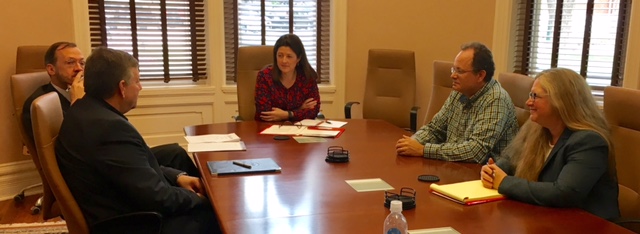
Dr. Meaghan Duff, Executive Director of the Personalized Learning Consortium (PLC) at the Association of Public Land Grant Universities (APLU) and Dr. Karen Vignare, PLC Program Director, met with faculty and administrators involved with adaptive learning at UM.
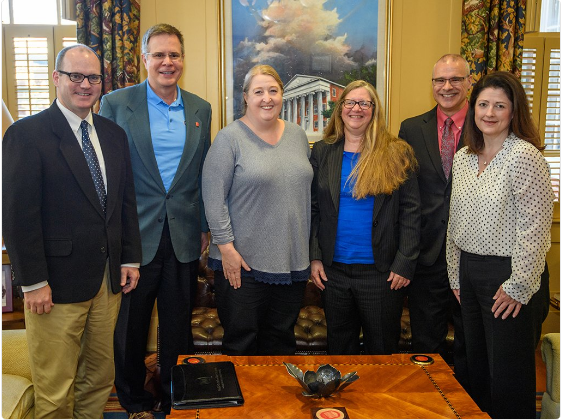
Pictured above: Dr. Stephen Monroe, Chancellor Vitter, Patricia O’Sullivan, Dr. Karen Vignare, Dr. Noel Wilkin, Dr. Meaghan Duff
March 30, 2017
The PLATO Program is featured on the UM website
PLATO Offers Students Personalized Learning
March 22, 2017
Center for Excellence in Teaching and Learning Faculty Development Luncheon
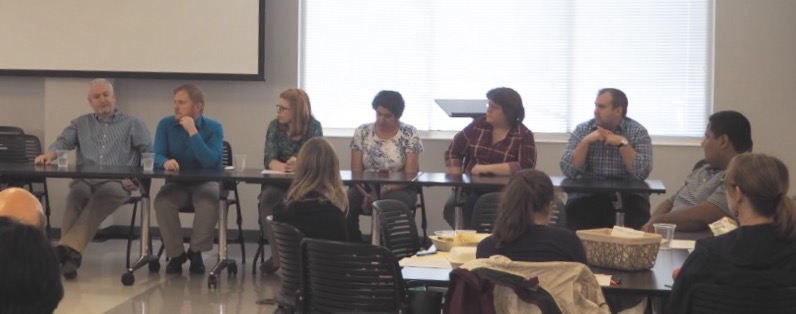
PLATO faculty share their experiences using adaptive courseware in the classroom. From Left: Guy Krueger, Andrew Davis, Carla Carr, Tammy Goulet, Kerri Scott, and Jon-Michael Wimberly.
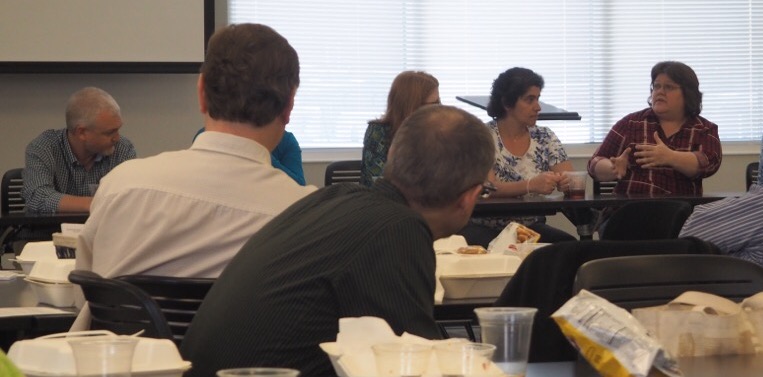
Kerri Scott explains how and why she developed the parachute program from Chem 105 to Chem 101, and how using adaptive courseware facilitated a smooth transition for students from one course to the other.
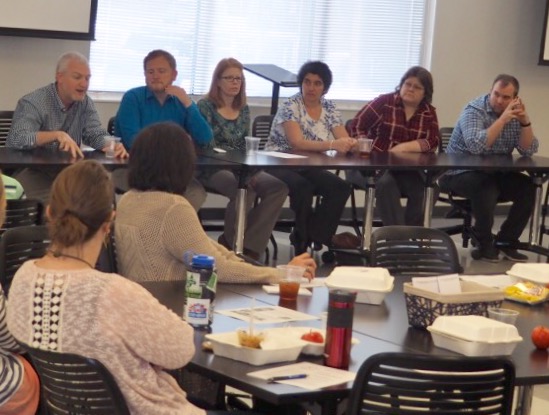
Guy Krueger speaks about how he, Andrew Davis and Karen Forgette are building an adaptive supplement to Writing 101.
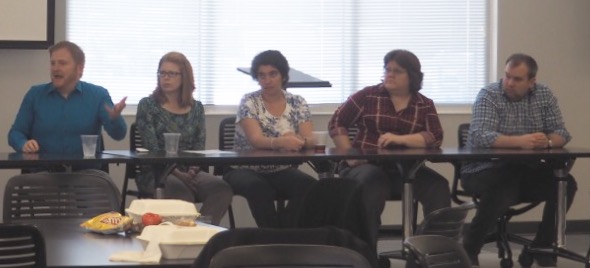
Andrew Davis speaks about how adaptive courseware will allow writing instructors to spend the majority of class time teaching writing rather than teaching remedial grammar and rhetoric concepts.

Jon-Michael Wimberly explains how adaptive components of his trigonometry class allows students to stay on track with personalized lessons and homework.
January 24, 2017 WCET Frontiers
The UM PLATO Program was highlighted in WCET’s online journal. Check it out by clicking the link below.
Helping Students with Adaptive Learning: APLU and the University of Mississippi
January 17, 2017 Faculty implementing adaptive learning meet for lunch in Ventress Hall
January 12-13, 2017 English Composition Courseware Collaboration in Washington, D.C.
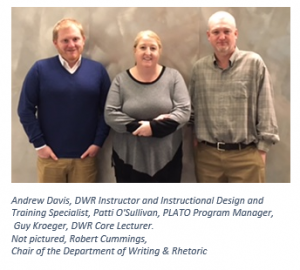 Members of the Department of Writing and Rhetoric faculty traveled to Washington, D.C. to meet with faculty from Georgia State University, Montclair University, and the University of Georgia to review their year-long participation in an APLU grant to develop and pilot adaptive courseware for English Composition.
Members of the Department of Writing and Rhetoric faculty traveled to Washington, D.C. to meet with faculty from Georgia State University, Montclair University, and the University of Georgia to review their year-long participation in an APLU grant to develop and pilot adaptive courseware for English Composition.
January 20, 2017: Learn how to implement active learning in a large classroom! Register for the workshop.
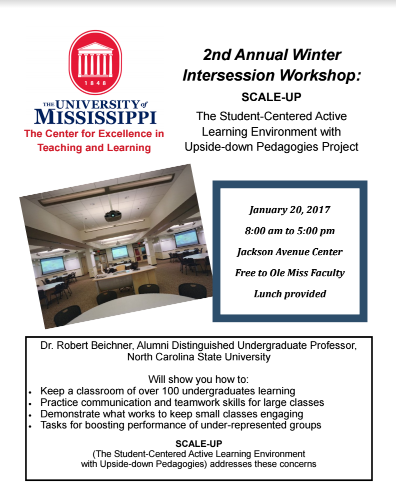
The PLATO Program Office will be closed December 21 – January 3.
Adapting to Adaptive Learning: transforming a lecture class into a personalized learning experience
December 7, 2016, 2:00 PM CST / 3:00 PM EST
Presented By: Patricia O’Sullivan, Manager, Personalized Learning & Adaptive Teaching Opportunities (PLATO) Program, University of Mississippi
Beyond the Horizon – Digital Literacy Forum
December 15th @ 10am -11am Central Time
Presented by: New Media Consortium
Free to All
